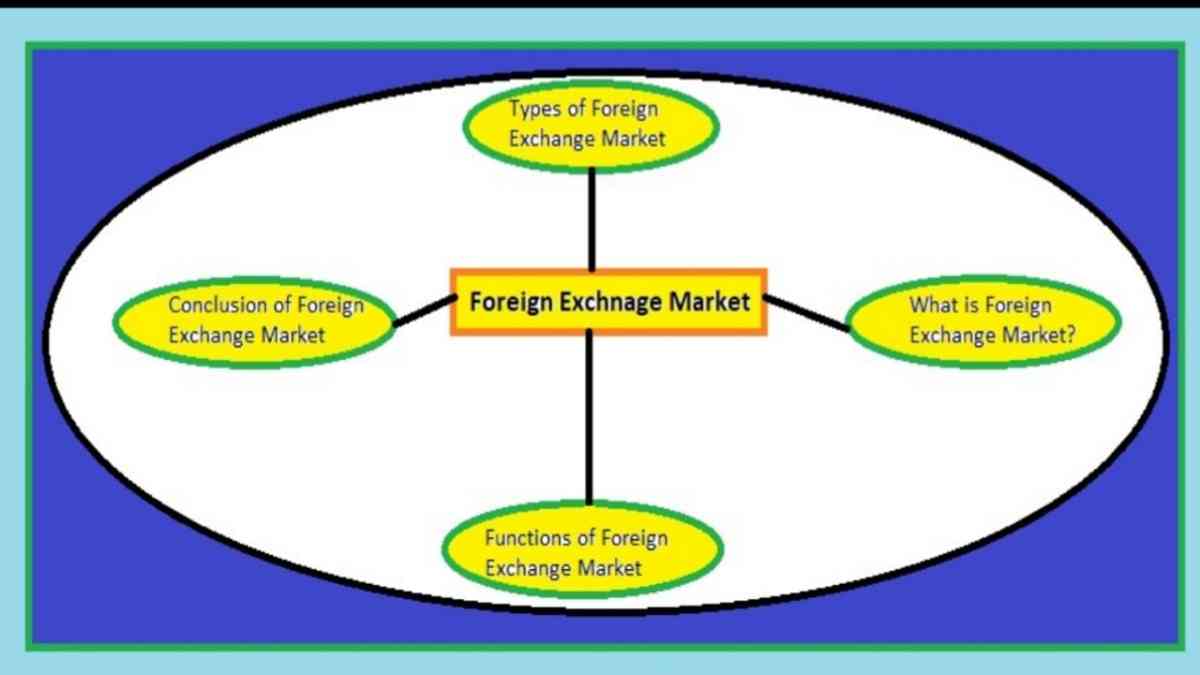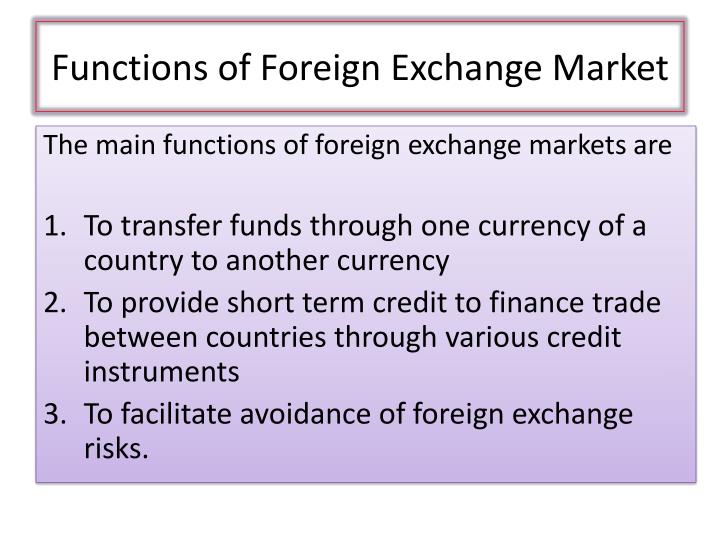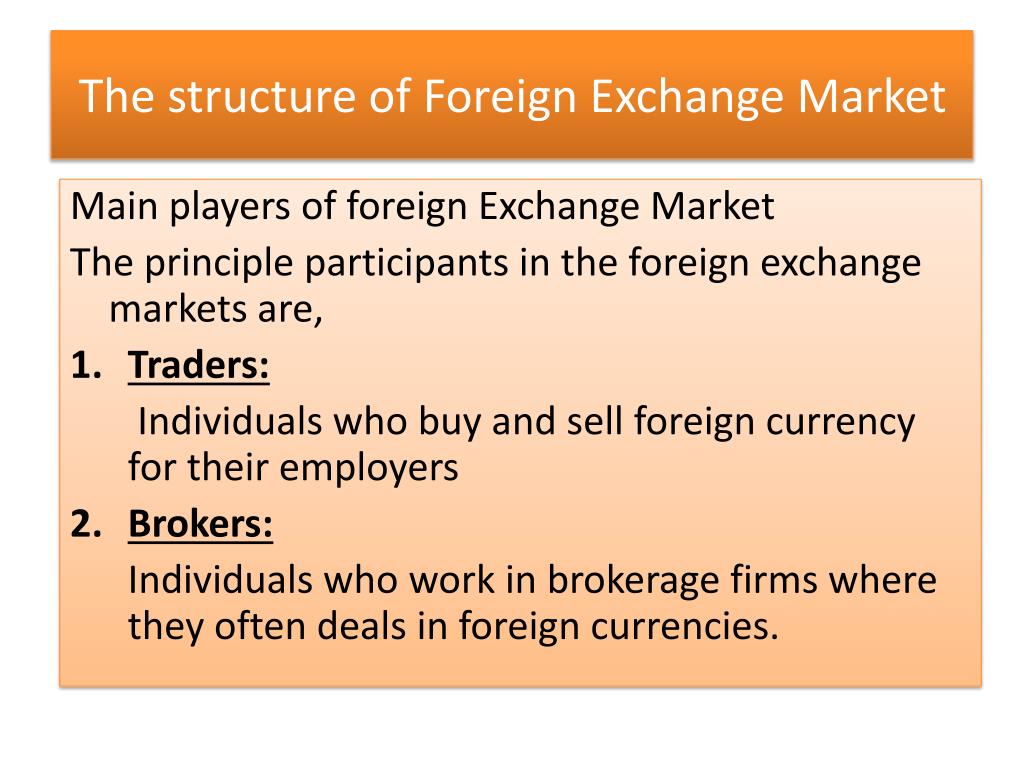What is foreign exchange market and its functions – Welcome to the realm of foreign exchange, where currencies dance and economies intertwine. This market, known as the foreign exchange market, is the beating heart of global trade, facilitating the exchange of currencies and shaping the financial landscape. Join us as we delve into the depths of this fascinating arena, exploring its participants, transactions, and the profound impact it has on our world.
Definition of Foreign Exchange Market
The foreign exchange market, often known as Forex or FX, is a global, decentralized marketplace where currencies are traded. It facilitates the exchange of one currency for another, enabling international trade and investment.
Foreign exchange plays a crucial role in global commerce, as it allows businesses to purchase goods and services from other countries and make payments in their local currency. The foreign exchange market provides a platform for currency conversion, ensuring smooth cross-border transactions and minimizing exchange rate risks.
The Role of the Foreign Exchange Market
The foreign exchange market serves several key functions:
- Currency Exchange: The primary role of the foreign exchange market is to facilitate the exchange of currencies. It enables individuals, businesses, and financial institutions to buy and sell different currencies at prevailing exchange rates.
- Price Discovery: The foreign exchange market is a highly liquid and efficient market that determines the value of currencies. Through the interaction of buyers and sellers, the market establishes exchange rates that reflect supply and demand for each currency.
- Risk Management: The foreign exchange market allows businesses and investors to manage currency risk. By hedging their foreign exchange exposure, they can minimize potential losses arising from fluctuations in exchange rates.
Participants in the Foreign Exchange Market
The foreign exchange market is a global, decentralized market where currencies are traded. It involves a wide range of participants, each with its own role and function.
The major participants in the foreign exchange market include:
- Banks: Commercial banks are the most active participants in the foreign exchange market. They facilitate currency exchange for their customers, speculate on currency movements, and provide liquidity to the market.
- Central banks: Central banks are responsible for managing the monetary policy of their respective countries. They intervene in the foreign exchange market to influence the value of their currency and maintain economic stability.
- Institutional investors: Institutional investors, such as hedge funds, pension funds, and insurance companies, trade currencies as part of their investment strategies. They often seek to profit from currency fluctuations or hedge against currency risk.
Types of Foreign Exchange Transactions

Foreign exchange transactions encompass various types, each tailored to specific needs and time frames. Understanding these transaction types is crucial for effective participation in the foreign exchange market.
Find out about how foreign exchange market nature can deliver the best answers for your issues.
Spot Transactions
Spot transactions involve the immediate exchange of currencies at the prevailing market rate. These transactions are settled within two business days and are commonly used for immediate currency needs, such as making payments or covering short-term obligations.
Forward Contracts
Forward contracts are agreements to exchange currencies at a predetermined rate on a future date. They are used to hedge against potential currency fluctuations and lock in exchange rates for future transactions. Forward contracts are customizable, allowing parties to specify the amount, currency pair, and settlement date.
Currency Swaps
Currency swaps are agreements to exchange currencies for a specific period, typically ranging from one month to several years. They involve two parties exchanging principal amounts in different currencies and agreeing on a future date to reverse the transaction at a predetermined exchange rate. Currency swaps are used for various purposes, including managing currency risk, hedging against interest rate fluctuations, and speculating on currency movements.
Factors Influencing Foreign Exchange Rates
Foreign exchange rates are constantly fluctuating due to a myriad of factors that influence their value. These factors can be broadly categorized into economic data, political events, and market sentiment.
Economic Data
Economic data provides insights into the health and performance of a country’s economy. Key economic indicators that affect foreign exchange rates include:
- Gross Domestic Product (GDP): Measures the total value of goods and services produced within a country over a specific period.
- Inflation: Measures the rate at which prices for goods and services are rising.
- Interest Rates: Set by central banks, interest rates influence the cost of borrowing and can impact currency demand.
- Balance of Trade: Compares the value of a country’s exports and imports, indicating its trade surplus or deficit.
For instance, a strong GDP growth rate and low inflation can make a currency more attractive to investors, leading to an appreciation in its value.
Obtain a comprehensive document about the application of foreign exchange market yen dollar that is effective.
Political Events
Political events can significantly impact foreign exchange rates. These include:
- Elections: Changes in government can lead to shifts in economic policies and investor confidence.
- Wars and Conflicts: Political instability and armed conflicts can erode investor confidence and weaken a currency.
- Trade Policies: Changes in trade policies, such as tariffs or sanctions, can affect the demand for a country’s goods and services.
For example, the Brexit vote in 2016 caused a sharp depreciation in the value of the British pound due to uncertainty about the UK’s future economic and political outlook.
Market Sentiment
Market sentiment refers to the collective attitude and expectations of investors towards a particular currency. This sentiment can be influenced by:
- News and Rumors: Market-moving news, such as central bank announcements or economic data releases, can influence sentiment.
- Speculation: Traders may speculate on future currency movements based on market conditions and their own predictions.
- Carry Trade: Investors may borrow in low-interest currencies and invest in high-interest currencies, leading to increased demand for the latter.
For example, positive market sentiment towards a currency can lead to increased demand, causing its value to appreciate.
Functions of the Foreign Exchange Market: What Is Foreign Exchange Market And Its Functions

The foreign exchange market serves several crucial functions in the global financial system:
Facilitating International Trade: The foreign exchange market is the backbone of international trade, enabling the exchange of currencies to facilitate the purchase and sale of goods and services across borders. Without a well-functioning foreign exchange market, businesses would face significant challenges in conducting international transactions, and global trade would be severely hampered.
Providing Liquidity
The foreign exchange market provides liquidity, which refers to the ease with which currencies can be bought and sold. The large volume of transactions in the market ensures that participants can enter or exit positions quickly and efficiently. This liquidity is essential for businesses and investors who need to manage their foreign currency exposure or hedge against currency fluctuations.
Reducing Risk, What is foreign exchange market and its functions
The foreign exchange market allows participants to manage and reduce risk associated with currency fluctuations. By using hedging instruments such as forwards, futures, and options, businesses and investors can protect themselves against potential losses due to adverse currency movements. This risk mitigation is vital for companies operating in multiple currencies and individuals with foreign currency investments.
Regulation of the Foreign Exchange Market
The foreign exchange market, with its vast size and global reach, requires proper regulation to ensure its stability, transparency, and fairness. This regulatory framework is overseen by central banks and international organizations, each playing a vital role in maintaining the integrity of the market.
Further details about foreign exchange market research topics is accessible to provide you additional insights.
Central banks, as the monetary authorities of their respective countries, hold significant influence over the foreign exchange market. They intervene by buying or selling currencies to manage exchange rates, stabilize the financial system, and control inflation. Additionally, central banks set regulations and guidelines for market participants, including banks, brokers, and traders, to ensure compliance with ethical and legal standards.
International Organizations
International organizations, such as the International Monetary Fund (IMF) and the Bank for International Settlements (BIS), also play a crucial role in regulating the foreign exchange market. The IMF monitors global economic and financial conditions, providing policy advice and financial assistance to member countries. It also promotes international cooperation on currency matters and assists countries in managing their foreign exchange reserves.
The BIS serves as a central bank for central banks, facilitating cooperation and information exchange among its members. It conducts research and analysis on the foreign exchange market, providing insights and recommendations to policymakers and market participants. Additionally, the BIS develops and promotes best practices for risk management and settlement systems in the foreign exchange market.
Impact of the Foreign Exchange Market on the Global Economy
The foreign exchange market has a profound impact on the global economy, influencing trade, investment, and economic growth. By facilitating currency exchange, it enables businesses to engage in international trade, investors to diversify their portfolios, and governments to manage their economies.
One of the most significant effects of the foreign exchange market is its impact on trade. Currency exchange rates determine the relative prices of goods and services between countries, affecting the competitiveness of exports and imports. A favorable exchange rate can boost exports by making domestic goods cheaper for foreign buyers, while an unfavorable exchange rate can hinder exports by making them more expensive.
Trade
- Export Competitiveness: A favorable exchange rate makes exports cheaper for foreign buyers, increasing demand and boosting trade.
- Import Costs: An unfavorable exchange rate increases the cost of imports, potentially leading to higher inflation or reduced consumption.
- Balance of Trade: Exchange rates can influence the balance of trade, as a weaker currency can make exports more competitive and reduce imports.
Investment
- Portfolio Diversification: The foreign exchange market allows investors to diversify their portfolios by investing in foreign assets, reducing overall risk.
- Currency Hedging: Investors can use foreign exchange contracts to hedge against currency fluctuations, mitigating potential losses.
- Foreign Direct Investment: Exchange rates can influence the flow of foreign direct investment, as investors seek countries with favorable exchange rates for their investments.
Economic Growth
- Export-led Growth: A favorable exchange rate can promote export-led economic growth by boosting exports and increasing foreign currency reserves.
- Inflation Management: Central banks can use foreign exchange interventions to influence the exchange rate, helping to manage inflation or stabilize the economy.
- Economic Stability: A stable foreign exchange market can provide confidence to businesses and investors, promoting economic stability and growth.
Final Summary

In conclusion, the foreign exchange market stands as a pivotal force in the global economy, connecting nations and facilitating the seamless flow of trade and investment. Its intricate web of transactions, influenced by a myriad of factors, weaves together the destinies of currencies and economies worldwide. Understanding this dynamic market empowers us to navigate the complexities of international finance and appreciate its profound impact on our interconnected world.
